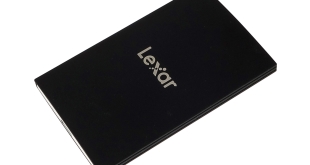Today, we are using the excellent Asus P8P67 Deluxe motherboard.
We manually set the voltage to 1.65 in the Asus bios.
The Asus motherboard has a simple one push button to achieve a comfortable, yet ‘safe' overclock – many people buying a similar system would use this for an easy performance boost. In this case it configured our 2600k processor to 4388mhz via a 43x multipler. It also forced the memory to 1630mhz @ 9-9-9-24 timings. System validation is available over here.
Next we attempted to overclock the memory, while keeping the processor at the same speeds. Using the Asus memory overclock section we forced it to 1900mhz.
The system was initially unstable so we increased the memory voltage and started to adjust timings.
Stability was only achieved by relaxing the DRAM RAS to CAS delay from 9 to 11. We also increased voltage to 1.67, a safe setting.
System validation at these timings is available over here.
Pushing the memory even further was possible, and we achieved 2000mhz, but it required relaxing the timings even more to 10-11-10, which ultimately gave less performance than when running at 1900mhz with 9-11-9 timings. We won't be using the 2000mhz setting in the review today.
Test System:
CPU: Intel Core i7 2600k @ 4,388mhz
Motherboard: Asus P8P67 Deluxe
Cooler: Thermaltake Frio OCK
Chassis: Thermaltake Level 10 GT
Power Supply: ADATA 1200W
Graphics: AMD HD6850
Hard Drives: Intel 128GB SSD (Boot), Samsung 2TB (storage), Crucial 128GB SSD.
Comparison memory: No Brand DDR3 1333mhz 4GB 9-9-9-24
Software:
SiSoft Sandra
Adobe Photoshop CS5 64 bit
3D Studio Max 2011
Aida 64 Extreme Edition
MaxMemm
Cinebench R11.5 64 bit
 KitGuru KitGuru.net – Tech News | Hardware News | Hardware Reviews | IOS | Mobile | Gaming | Graphics Cards
KitGuru KitGuru.net – Tech News | Hardware News | Hardware Reviews | IOS | Mobile | Gaming | Graphics Cards










